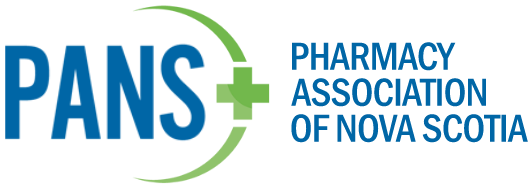
Some of the ways your pharmacist can help are:
- Medication reviews
- Counselling on medications
- Provide advice on reducing medication side effects
- Assess and prescribe for mild urticaria (including bites and stings)
Summer and your medication
- Make sure you are storing your medication in proper temperatures.
- Know which medications can cause dehydration.
- Don’t leave your medication in the car, the heat can cause some medications to have a decreased potency. Ask your pharmacist how to properly store your medication.
- Ask your pharmacist if any medication will interact with prolonged exposure to sunlight.
Sun Safety
- Stay out of the sun between its hottest hours, 10:00a.m and 4:00p.m.
- Wear hats, and light coloured lightweight clothing.
- Wear sunglasses that have UV protection.
- Use a sunscreen that is broad spectrum (protects against UVA & UVB) that has a minimum SPF of 30.
- Reapply sunscreen frequently and immediately after swimming.
- Ask a pharmacist about appropriate creams and painkillers to relieve sunburn symptoms.
- Apply sunscreen at least 15 minutes before exposure and re-apply at least every 2 hours.
- Apply sunscreen before insect repellent.
Vacation ready
- Make sure all your required shots are up to date before leaving.
- Make sure the medications you bring with you is legal in other countries.
- If you have concerns or questions about this contact the country’s foreign government office in Canada before your trip or visit a travel clinic.
- Take some medication in your carry-on in case your checked luggage gets delayed or lost.
- Make sure you have enough medication to last a few days more than the planned trip in case of delays.
- Keep medication in original packaging with the label attached.
- Bring a copy of your prescription and the reason why you are taking this medication with you in your carry-on baggage.
- If you are traveling to another time zone remember to adjust the time you take your medication.
- Ask your pharmacist about non-prescription medications that could be useful to take with you on vacation.
- It is important to include a travel health kit with some first aid supplies on any of your travel plans this summer.
Stay Hydrated & Eat Right Wherever You Are
- Drink plenty of water.
- Avoid juices high in sugar, pop, alcohol.
- Drink continually throughout the day not just during times of physical activity.
- Eat small meals more often.
- Eat healthy.
Protecting against Bug Bites
- Protect infants from bug bites by using netting over their strollers and beds.
- Use icaridin insect repellent to protect anyone over the age of six months.
- Insect repellent containing up to 10% DEET can be used in those 2-12 and those 12 and older can use up to 30% DEET.
- Lightly apply insect repellant to exposed skin. Do not apply to cuts, or irritated skin.
- Wear tightly woven pants and shirts that cover the arms and legs.
Treating insect bites
- Wash the bitten area with warm water and soap.
- Apply a wet cloth or ice pack to relieve skin irritation.
- Ask your pharmacist about over the counter medication that could relieve itching and other related bug bite symptoms.
- Seek medical help immediately if you experience these symptoms shortly after being bitten:
- Nausea/vomiting
- Tightness in the throat or chest
- Abdominal pain
- Swollen throat
- Changes in heart rate
- Dizziness/fainting
- Itchiness all over the body
- Hives.
Helpful Links
- https://travel.gc.ca/travelling/health-safety/kit
- https://travel.gc.ca/travelling/health-safety/insect-bite
- https://www.cdc.gov/features/stopmosquitoes/index.html
- https://www.cdc.gov/features/uv-radiation-safety/
- https://www.canada.ca/en/health-canada/services/sun-safety.html

